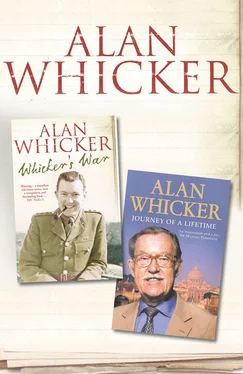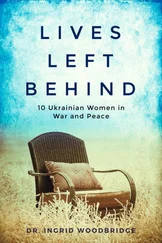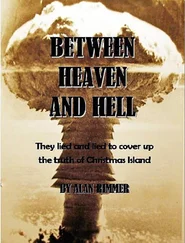Posters showed a monstrous John Bull, the world his rounded stomach as he swallowed more lands. Another was of a grinning skeleton in a British steel helmet. I took pictures of them while passers-by hurried on, fearful lest I turn and blame them.
We returned across Sicily to the Eighth Army HQ on the malarial Lentini plain – indeed a large number of our casualties were from mosquitoes. During the night we felt huge shuddering explosions outside Catania and watched sheets of flame light the sky. The Germans were blowing-up their ammunition dumps – so they were about to start their escape to the mainland.
A new officer had arrived to join us: Lieutenant A.Q. McLaren who, captured in the desert by Rommel’s Afrika Korps while using two cameras, had refused to hand one over because it was personal property and demanded a receipt for the War Office Ikonta. He later escaped, still carrying the receipt.
As we were meeting, an operational message came in saying that Catania was about to fall. We scrambled off to get the pictures. McLaren was driving ahead of me, standing up in the cab of his truck watching for enemy aircraft, as we all had to. This gave a few seconds’ warning if the Luftwaffe swooped down to strafe the road.
We drove in column around the diversion at reeking Dead Horse Corner. In the dust ahead lay a German mine. McLaren’s warning scream came too late. It was his first day in Sicily.
The patient infantry plodding past us moved on silently towards the city. They had seen another violent death and perhaps they too would soon stop a bullet or a shellburst. In an hour or so some of them would also be dead, and they knew it.
The whole direction of their lives now was to reach some unknown place and, if possible, kill any unknown Germans they found there. In battle, death is always present and usually unemotional, and when it approaches, inches can mean the march goes on – or you are still and resting, for ever.
However its proximity does wipe away life’s other problems. Those plodding figures passing Dead Horse Corner and McLaren’s body were not worrying about unpaid bills or promotion or nagging wives or even sergeant majors. Getting through the day alive was achievement enough.
It took the population of Catania some time to realise that the Germans had gone. Then they came out into the streets to cheer and show their relief, carrying flowers, fruit, wine … It was hard to see them as enemies. Our pictures showed Italian nurses tending the wounded of the Durham Light Infantry.
At this point Sergeants Herbert and Travis arrived and unintentionally captured Catania’s entire police force. This was not in the shot-list. They had left their jeep behind a blown bridge on the road into town and were filming on foot when a civilian car came out of the city towards them. Surprised by such an apparition in a war zone, they commandeered it and ordered the driver to turn round and take them into Catania.
Speeding ahead of the Army, he whizzed excitedly along back streets and finally through two huge gates into a palace courtyard full of armed carabinieri. As the gates slammed behind them and they looked around at massed uniforms … suspicion dawned that now they might be the prisoners.
Then the Commandant in an elegant uniform arrived, saluted, and asked for their orders. That was better. They ventured that they were just a couple of photographers who did not really want a police force, not just then. However, they did want transport.
They were instantly ushered into a large garage crammed with every type of vehicle, their choice was filled with petrol and the ignition key presented with a flourish. Amid salutes, the conquering sergeants drove out through the massive gates, at speed. Honour had been satisfied on all sides.
The object of much planning-ahead during the final fighting through Sicily was not the capture of Messina, straddling the enemy’s escape route and well-protected by Kesselring’s massed anti-aircraft guns, but of Taormina, an hour’s drive to its south. This charming honeymoon-village of the Twenties climbs the rocky coast in the shadow of Mount Etna’s 11,000 feet. Like Capri, its flowers, pretty villas and bright social life gave it a sort of Noël Coward appeal. It was untouched by war, of course, as all armies protect places they might wish to use as headquarters, or billets.
It was a placid scene, as we arrived. Out in the bay a British gunboat lay peacefully at anchor, while a number of anxious Italian soldiers were standing on the beach trying to surrender to it. They would probably have been almost as satisfied if anyone else had paused to capture them – even a passing Film Unit – but by this time we had all become rather blasé about Italian prisoners. They had lost their scarcity value.
My CO Geoffrey Keating and our War Artist friend Edward Ardizzone had reached Taormina ahead of the army patrols. I was surprised poor old Ted could climb the mountainside because he seemed to be overweight and getting on a bit – he was at least 40. However he struggled up the 800 feet from the seashore – not as elegantly as Noël arriving at the beginning of Act 2 but in time for them to requisition, breathlessly, the Casa Cuseni. This splendid little villa built of golden stone was owned before the war by an expatriate British artist. Its garden was heady with the exotic scent of orange blossom, its library equally heady with pornography.
Despite those distractions, the defeat of the Germans in Sicily meant that we at last had time to be happy, even as we prepared for the coming invasion of the mainland. Every evening we relaxed with a Sicilian white in the hush of the garden terrace as the sun set behind Mount Etna. This was war at its best…
The 10,000 square miles of Sicily had been captured in 38 days, during which the Allies suffered 31,158 casualties. The Wehrmacht had lost 37,000 men, the Italians 130,000 – most of them, of course, prisoners getting out of the war alive.
In its successful strategic withdrawal, the German army corps had little air and no naval support, yet its 60,000 men stood up to two Allied armies of 450,000 men – and finally some 55,000 of them escaped across the Straits of Messina to Italy to fight another day. They took with them 10,000 vehicles and 50 tanks. Generalfeldmarschall Kesselring – the troops called him ‘Laughing Albert’ – had enough to laugh about at this Dunkirk victory.
Our last pictures of the Sicilian campaign showed Generals Eisenhower and Montgomery staring symbolically through field glasses out across the Straits of Messina towards the toe of Italy, and the enemy. That was to be our next step towards the end of the war. Behind them in Sicily, an Allied military government was being established, though in fact control of the island was falling back through the years into the hands of the island’s secret army – the Mafia.
Our victory was darkened by the fact that behind the scenes – and with the very best of intentions, you understand – the Americans were handing Sicily back to its former masters. In a misguided military decision, they enlisted the Godfather!
From his prison cell in New York State, Lucky Luciano, then Capo di tutti Capi , arranged Mafia support and guidance for the Allies in Sicily – in return of course for various business concessions. So it was that Lucky was released from prison and flown-back to his homeland to ‘facilitate the invasion’ – and on the side, to set-up the Mafia’s new narcotics empire. Vito Genovese, well-known New York hoodlum wanted for murder and various crimes in America, turned up in uniform in Sicily as a liaison officer attached to the US Army. Through threats and graft and skill, their contingent soon out-manoeuvred our unworldly do-gooding AMGOT, the Allied Military Government of Occupied Territory. We had our card marked by gangsters.
Читать дальше












